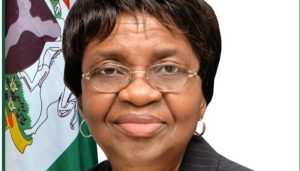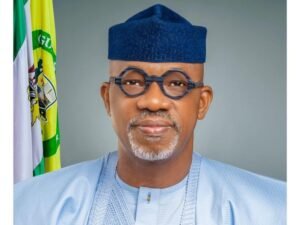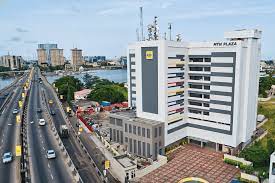
There are indications in the insurance industry that only 19 out of the 36 states of the federation accepted at various stages of implementation Universal Health Coverages (UHC) through the establishment of their health insurance schemes while 17 states have no plan to embrace the scheme, 19 years after the launch of the programme in Nigeria.
This was contained in a paper delivered by the Head, Medical Services, Leadway Health, Dr Temitope Falaiye, at a virtual media training, organised by the underwriting in Lagos, said Nigeria had spent a relatively small proportion of national income, translating to about four per cent of the Gross Domestic Product (GDP) on health against the agreed 15 per cent at the 2001 Abuja Declaration.
Falaiye, noted that out-of-pocket expenditure on health is amongst the highest in the world put at 77.23 per cent of total health expenditure and the highest in Africa.
He added that a voluntary National Health Insurance Scheme(NHIS) exists in Nigeria but covers less than 5 per cent of the population, saying, Nigeria’s informal economy of more than 60 per cent of its total GDP is still largely uncovered.
However, according to him, Anambra, Delta and Lagos states have particularly made significant progress in enrollment of people on the scheme.
Health Insurance is one of the mechanisms for providing financial protection from the costs of using healthcare services, which is a key pillar of universal healthcare.
The protection it affords is extremely important as research from the World Bank and WHO affirmed that 100 million people are pushed into extreme poverty on a yearly basis due to healthcare expenses. While health insurance has been operational in Nigeria for over 18 years, the uptake still remained low.
“To bridge the coverage gap in the country, there is a need for state governors to adopt State Health Insurance Schemes for their workers. Anambra, Delta and Lagos States have particularly made significant progress in enrollment, as this made Private Health insurance accounts for less than three per cent of the Nigerian population,” he pointed out.
He maintained that there is no one-size-fits-all approach to achieving Universal Health Coverage (UHC) as strategies will depend on local circumstances, he said, improving Universal Health Coverage requires addressing building blocks of health systems with a proper roadmap from policy, implementation and monitoring.
Stressing the challenges of universal health coverage in Nigeria, he described it as underfunding and twisted funding allocation in favour of secondary and tertiary care as against primary healthcare, as well as poor public financial management
Others, also include; ” limited political commitment to health and primary healthcare, poor policy formulation, lack of clarity on roles and responsibilities at different levels of the system, lack of measures to assess the quality of care, lack of confidence in healthcare systems and human resource shortages (workforce)”
On recommendation, he stressed that for diversification of sources of funding, and increased funding for primary healthcare services through a public-private partnership, even as he suggested state-funded private health insurance in collaboration with private Health Management Organisations(HMOs)
calling for better funding/incentives for health providers in rural communities, he suggested that there must be fraud prevention and systems to check corruption among others.
He also said that improved government commitment to health especially at the state and local level is germane, with research-based policies and formulation of a national UHC roadmap involving national, state and international partners, and better collaboration between the public and private sector.
Governments, he advised, should create an enabling environment to promote Corporate Social Responsibility(CSR) support for UHC initiatives, while advocating the implementation of a monitoring and evaluation framework with data from key UHC indicators.
Also speaking on Leadway Health, which officially, started operation on the 1st of January, 2021, said, the HMO is made up of highly experienced, technology-savvy health insurance professionals who are driven to change the perspective of health insurance in Nigeria.
“At the onset, we analysed the customer journey, identified pain points and deployed targeted solutions to ensure a best in class experience for both health providers and clients.
“The growth of the company has been exponential with over 51,000 enrollees spread across the country (inclusive of corporate, retail and NHIS,” he stressed.
Similarly, at the meeting, the representative of the Leadway Capital & Trusts Limited, Gbolahan Oluyemi, in his presentation titled:” Understanding Wills and Trusteeship.” advised Nigerians on Estate planning which is the preparation and planning to manage an individual’s asset base after their demise or incapacitation.
According to Oluyemi, “there are different modes of state planning and they include Trust, Inter Vivos gifts and Wills. A Trust is an arrangement whereby a person transfers an asset to a person (Trustee) to hold in trust for the benefit of a third party (Beneficiary). A Will is a legal document by which an adult expresses how he/she wants his/her assets/property to be distributed after his/her death.”
Explaining the importance of will writing, he said, this ensures that assets will be distributed according to wishes, offers protection for beneficiaries, excuses the need for Letters of Administration, contains an inventory of assets and reduces fraud in the succession process as well as easy access to the Retirement Savings.
Earlier, Principal Investment & Strategy of the insurer, Joshua Ogbeifun, had charged media houses on the need to deepen insurance awareness and education through their write-ups, saying, though, insurance journalists have tried in this regard, they can still improve on this to increase insurance adoption and penetration as well as insurance industry profitability.







